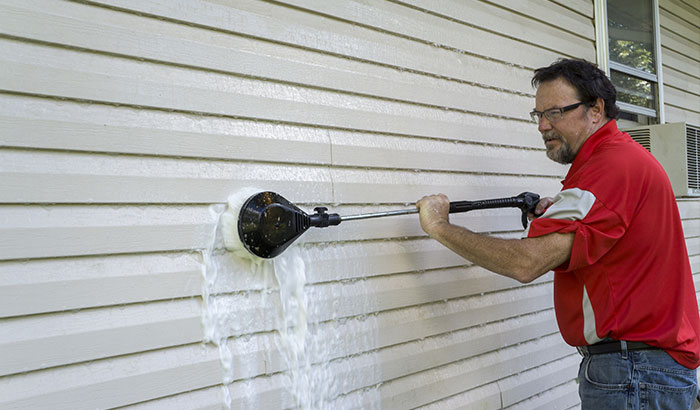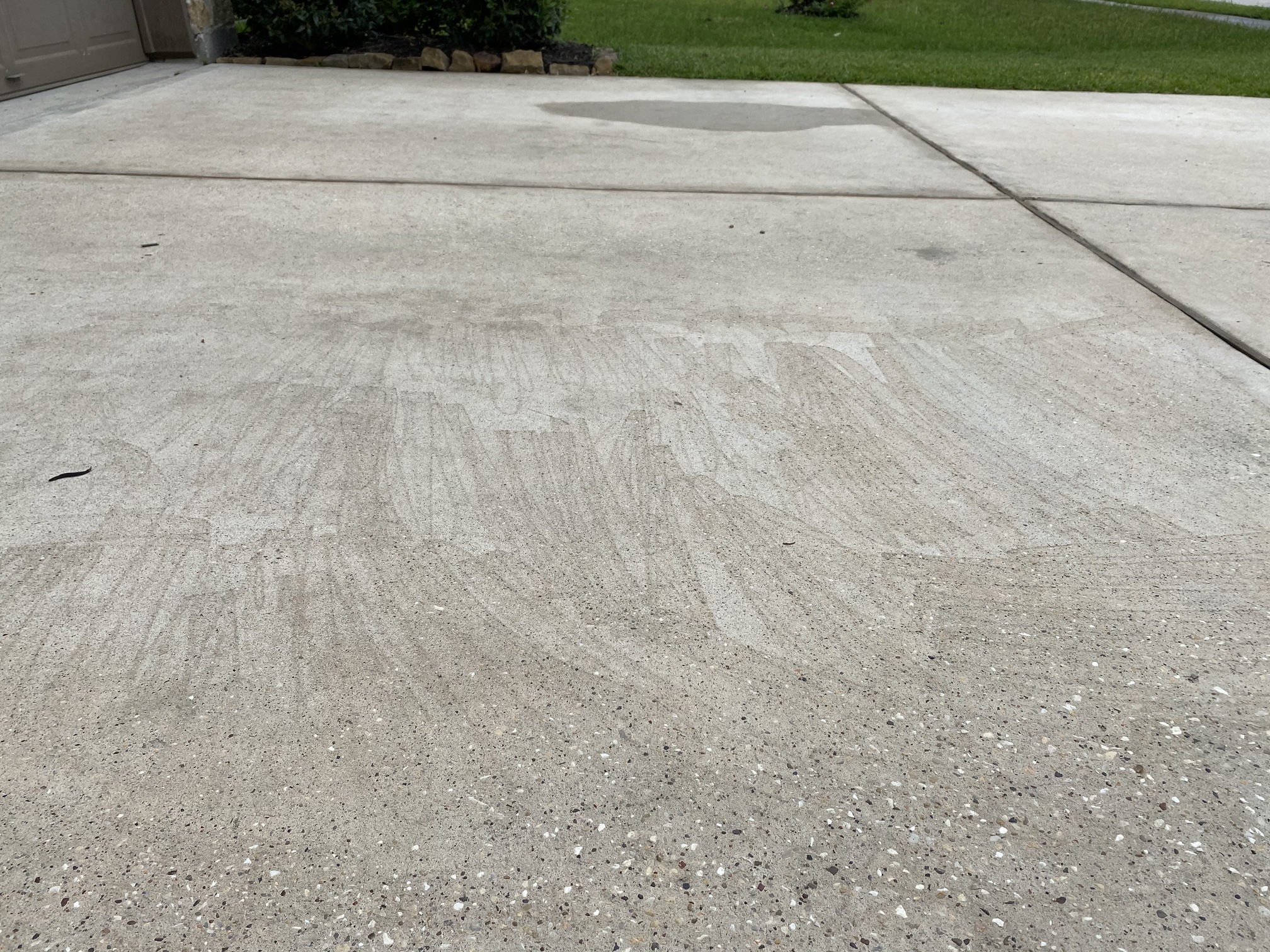Yes, bleach can damage a pressure washer. It can corrode components and degrade seals, leading to costly repairs.
Using a pressure washer is an effective way to clean various surfaces, but caution is essential when choosing cleaning solutions. Many homeowners consider bleach for its strong disinfecting properties. However, bleach can harm your pressure washer’s internal components. It may cause corrosion and wear down seals, resulting in malfunctions.
Understanding the impact of bleach on your equipment can save you money and extend its lifespan. Instead, consider using specialized cleaning agents designed for pressure washers. These products clean effectively without damaging your machine. Always prioritize your equipment’s health to ensure optimal performance and longevity.

Credit: mountainstateswindows.net
Page Contents
- 1 Introduction To Pressure Washers And Bleach
- 2 The Chemistry Of Bleach
- 3 Potential Effects Of Bleach On Pressure Washers
- 4 Myths Versus Facts
- 5 Proper Use Of Chemicals In Pressure Washing
- 6 Maintaining Your Pressure Washer
- 7 Alternatives To Bleach
- 8 Expert Advice On Pressure Washing
- 9 Frequently Asked Questions
- 10 Conclusion
Introduction To Pressure Washers And Bleach
Pressure washers use high-pressure water to clean surfaces effectively. Adding bleach can help remove stains and mold. However, bleach may cause damage if not used correctly.
Some people think bleach is safe for all surfaces. This is false. Bleach can harm paint, wood, and plastic. Always test a small area first.
Another common misconception is that bleach cleans better than water alone. While it can enhance cleaning, it is not always necessary. Many surfaces can be cleaned with just water.
Using bleach requires proper dilution. A strong solution can lead to fading or discoloration. Follow manufacturer guidelines for safe use.
The Chemistry Of Bleach
Bleach contains sodium hypochlorite as its main active ingredient. This chemical helps kill bacteria and mold. When used in a pressure washer, bleach can be very effective.
However, bleach can also damage surfaces. It may cause fading or discoloration on painted areas. Wood can absorb bleach and may warp or crack over time.
When using bleach, always dilute it with water. This helps reduce its strength and potential damage. Testing on a small area first is a smart idea.
| Surface | Effect of Bleach |
|---|---|
| Wood | Can warp or crack |
| Painted Surfaces | May fade or discolor |
| Concrete | Usually safe, but can stain |
Potential Effects Of Bleach On Pressure Washers
Bleach can have serious effects on pressure washer components. It can corrode metal parts. Rubber seals and hoses may weaken or break. This can lead to leaks and malfunctions.
Long-term exposure to bleach can cause irreparable damage. The pump may fail, leading to costly repairs. Regular use of bleach can void warranties on many machines. It’s best to use safe alternatives for cleaning.
| Component | Potential Damage |
|---|---|
| Metal Parts | Corrosion |
| Rubber Seals | Weakening |
| Pump | Failure |
| Warranty | Voided |

Credit: m.youtube.com
Myths Versus Facts
Many believe that using bleach in a pressure washer is safe. This is a common myth. In truth, bleach can harm the machine. It may cause corrosion and damage internal parts.
Pressure washers rely on various components, including hoses and pumps. Bleach can weaken these materials over time. Chlorine in bleach is particularly damaging. It leads to rust and wear on metal components.
Some people think bleach cleans better than soap. This is not entirely true. Soap and water are often safer and effective. Using soap can prevent long-term damage to your pressure washer.
| Myth | Fact |
|---|---|
| Bleach cleans better. | Soap is often safer and effective. |
| Bleach is safe for all machines. | Bleach can cause corrosion and damage. |
Proper Use Of Chemicals In Pressure Washing
Choosing the right cleaning solutions is essential for effective pressure washing. Commonly used options include detergents, soaps, and environmentally friendly cleaners. Avoid using bleach unless necessary, as it can harm surfaces and equipment.
For safe chemical use, always wear protective gear like gloves and goggles. Ensure good ventilation in the area you are cleaning. Read all labels and follow the manufacturer’s instructions carefully. Never mix different chemicals, as this can create dangerous reactions.
| Cleaning Solution | Recommended Use |
|---|---|
| Detergent | For general cleaning and dirt removal |
| Soap | For light stains and grime |
| Eco-friendly Cleaners | For safe, chemical-free cleaning |
Maintaining Your Pressure Washer
Routine cleaning keeps your pressure washer in top shape. Regularly check for clogs and blockages. Inspect hoses and connections for wear or damage. Clean the filter to ensure proper water flow.
Signs of chemical damage include cracks or fading on the casing. If the paint peels, this may signal harm from harsh chemicals. Discoloration on surfaces is another warning sign. Always use gentle cleaners to avoid issues.
Store your pressure washer in a dry place. Protect it from extreme temperatures and direct sunlight. Following these tips will help extend its life and performance.
Alternatives To Bleach
Eco-friendly cleaning agents offer a safe alternative to bleach. These products are less harmful to the environment. Common options include vinegar, baking soda, and lemon juice. They effectively clean surfaces without harsh chemicals.
Many people prefer these alternatives for their safety. They are safe for pets and plants. Using eco-friendly agents reduces the risk of skin irritation. They also have less harmful fumes.
| Cleaning Agent | Effectiveness | Safety |
|---|---|---|
| Vinegar | Good for stains and odors | Non-toxic |
| Baking Soda | Great for scrubbing | Safe for skin |
| Lemon Juice | Effective against grease | Natural disinfectant |
Expert Advice On Pressure Washing
Using bleach in a pressure washer can be risky. It may damage the washer’s components. Always check the manufacturer’s guidelines before using bleach. Some materials may not react well with bleach.
To achieve the best results, dilute bleach with water. A common ratio is 1 part bleach to 10 parts water. This helps protect your pressure washer while cleaning effectively.
Always wear protective gear when using bleach. Goggles and gloves can prevent skin and eye irritation. Store bleach in a safe place away from children and pets.
Consider using alternative cleaners that are less harsh. Many eco-friendly products work well without damaging equipment. Research options that suit your cleaning needs.

Credit: advantageproservices.com
Frequently Asked Questions
Will Bleach Ruin My Pressure Washer?
Yes, bleach can damage your pressure washer. It can corrode internal components and lead to malfunction. The chemicals in bleach may also degrade seals and hoses. Always check the manufacturer’s guidelines before using bleach. Opt for pressure washer-safe detergents for best results.
Is Bleach Safe For Pressure Washer Surfaces?
Bleach can be safe on some surfaces but not all. It is effective on mold and mildew but can discolor some materials. Always test a small area first. Use diluted bleach solutions to minimize potential damage. Always rinse thoroughly after application to prevent residue buildup.
How To Use Bleach In Pressure Washing?
If using bleach, dilute it properly before application. A common ratio is one part bleach to ten parts water. Always apply it using a low-pressure nozzle to avoid damage. Allow it to sit for a few minutes, then rinse thoroughly.
Follow all safety precautions during use.
What Are Alternatives To Bleach For Cleaning?
There are several effective alternatives to bleach. Vinegar, baking soda, and commercial pressure washer detergents work well. These options are less harsh and safer for your equipment. They can effectively remove mold, mildew, and dirt. Always choose a cleaner compatible with your specific pressure washer.
Conclusion
Bleach can be harmful to pressure washers if not used correctly. It’s essential to understand the manufacturer’s guidelines before applying bleach. Always dilute it properly and test on a small area first. By following these precautions, you can maintain your equipment and ensure effective cleaning without damage.
Protect your investment wisely.

